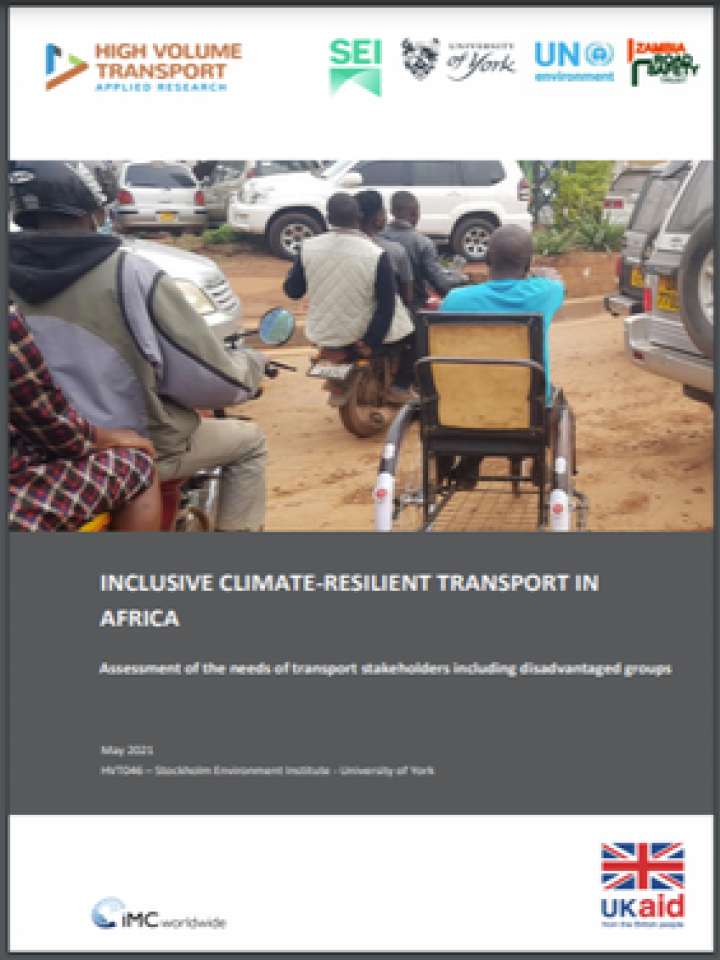Inclusive climate-resilient transport in Africa: assessment of the needs of transport stakeholders including disadvantaged groups
The aim of this needs assessment was to determine the main challenges transport planners and decisionmakers encounter in meeting the mobility needs of disadvantaged groups in the four project countries of Ethiopia, Rwanda, Uganda and Zambia. It also examined the awareness of the risks that climate change poses to the transport system, and the consideration given to climate resilience. In addition, the study took the opportunity to gather evidence from additional Western, Eastern and Southern African countries by including the results of a regional survey in this assessment. The overall objective of this project is to understand how the voice of disadvantaged groups can be better integrated in the transport planning process in low- and middle-income countries (LMICs) in Africa. In particular, the project examines how the mobility needs of low-income disadvantaged groups can be met in a changing climate, and how transport infrastructure can be made climate-resilient.
Based on the research conducted, the following common needs were identified, which will have to be addressed if the four countries are to achieve an inclusive climate-resilient transport system:
- There is a need for transport planners and decision-makers to understand better the mobility challenges faced by disadvantaged groups, especially walking and public transport use.
- Greater awareness is needed of the potential impact of climate on the transport sector and how to make transport infrastructure more resilient.
Explore further
